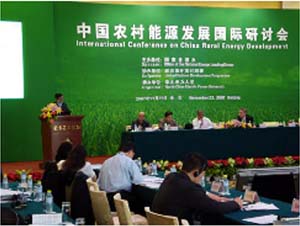Dec 26, 2025
Dec 26, 2025
 The Chinese government claims that only 8% of the rural population has no electricity. Contrast this with the number of 60% rural population in India which is without electricity. This and other numbers regarding the indicators of rural poverty in China are very suspect and generally the government of China does not readily come forth with numbers which show the state in bad light. This has always been the case with Chinese statistics.
The Chinese government claims that only 8% of the rural population has no electricity. Contrast this with the number of 60% rural population in India which is without electricity. This and other numbers regarding the indicators of rural poverty in China are very suspect and generally the government of China does not readily come forth with numbers which show the state in bad light. This has always been the case with Chinese statistics.
30-Dec-2007
More by : Dr. Anil Rajvanshi